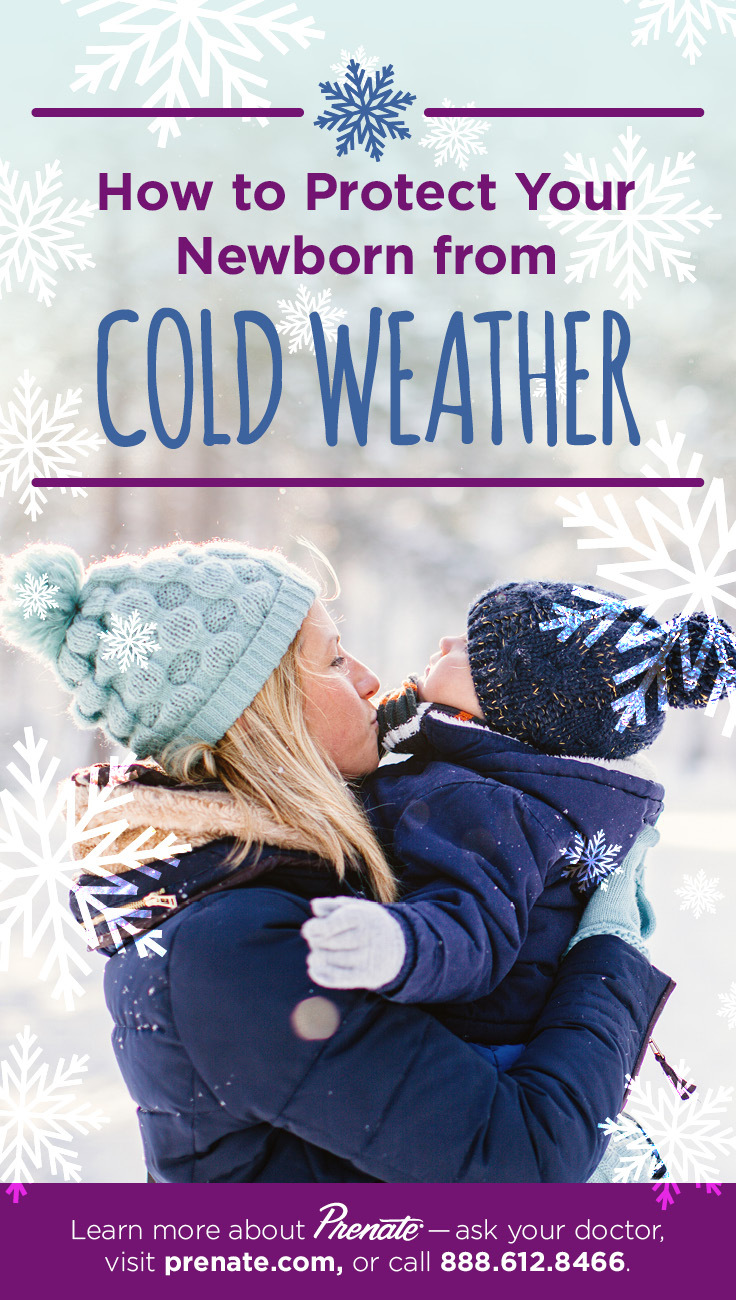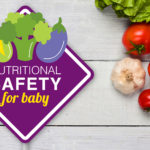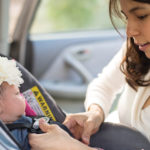Baby’s First Winter: How to Protect Newborns from Cold Weather
January 28, 2021
Turning up the indoor heat, piling on extra blankets, or wearing multiple layers is our usual approach to staying warm when the winter months roll in. But for newborns, frosty temperatures require you to take extra care to protect their delicate skin and developing immune systems. Whether you’re going outside or staying indoors, here are some tips to help keep your newborn comfortable and safe during the coldest time of the year.Dress Baby in Layers
Dress your newborn in comfy layers of breathable fabric. Layering gives you flexibility as the temperatures fluctuate. Make the first layer leggings or a onesie, which should fit your baby snuggly but not be constrictive. Add pants and a long sleeve shirt. Finish with a jacket or snowsuit, hat, mittens, and booties if you are taking baby outdoors. If baby is staying indoors, use lightweight cotton clothing that is soft and comfy.
Cover Baby’s Head, Hands, and Feet
The delicate skin on a baby’s head, hands, and feet is especially vulnerable to dry air and cold temperatures. Since babies lose a lot of heat through these body parts, a snug hat that covers the ears, a pair of mittens, and warm booties can be important winter accessories. Even indoors, a soft, lightweight hat and socks can keep baby cozy.
Limit Exposure Time
Even babies feel better when they go outside for fresh air, even if it’s winter air. But exposure time is different for newborns than it is for the rest of us. Babies should not be exposed to the outdoors during winter for more than 15 minutes at a time and should avoid going out at all in temperatures lower than 15 degrees.1 Keep in mind that wind chills make temperatures feel even colder.
Use a Humidifier
Cold and flu activity increases in the colder months and newborns are more susceptible to congestion and infections. A humidifier may make breathing easier and improve your little one’s sleeping conditions by adding moisture to the air, which can aid in loosening mucus buildup in nasal passages.
Set Thermostat at the Optimum Temperature
Before you are tempted to push the thermostat settings up this winter, consider your newborn. The optimum temperature of your home, and your baby’s room, depends on their square footage and location, but most pediatricians recommend keeping your thermostat at between 68 degrees and 72 degrees.1
Keep Baby’s Skin Moisturized
The responsible steps you take to keep your newborn warm in the winter can, unfortunately, lead to dry, irritated skin. If your baby’s skin becomes dry this winter, apply mild body washes and moisturizers to rehydrate the skin. Avoid wool fabrics that can inflame skin. Also, check and change diapers more often if necessary; prolonged wetness can lead to diaper rash.
Keep Up with Vaccinations
The U.S. Centers for Disease Control and Prevention (CDC) does not recommend flu vaccines for infants younger than six months; however, children this age are at a high risk of serious complications from the flu.2 To help protect your baby from the flu, ask the adults and other children who are around the baby, or anyone who cares for the baby, to get vaccinated for the flu.
What NOT to Do
It might be tempting to do everything you can to keep your baby warm in the cold temps, but you should avoid doing these things specifically:
- Covering baby with heavy blankets
- Covering baby with an electric blanket
- Putting baby’s crib near drafty windows or air vents
- Putting baby’s crib near a heater or fireplace
How to Tell if Your Newborn is too Cold
If newborns could tell us what they are thinking, life would be a lot easier. But since they can’t let you know if they are too hot or too cold, here are some things to look for:
- Hands or feet that feel cold to the touch
- Shivering
- Pale skin
- Fussiness
- Sneezing or a runny nose
While most of these signs can be easily alleviated by dressing your newborn in additional layers and going inside, signs such as lethargy could indicate hypothermia, which can be serious and may require medical treatment.
The worries of keeping your newborn safe during the winter might be enough to make you want to hibernate. But moms, the best advice is to follow your instincts and be properly prepared. You’ve got this.
Prenate® Vitamin Family
This post is brought to you by the Prenate® Vitamin Family, a line of prescription prenatal supplements designed to enhance preconception, prenatal, and postpartum nutrition in women. Talk with your doctor about how taking a daily prescription prenatal or postnatal vitamin could help support a healthy pregnancy and postpartum wellness.
You Are About To Leave This Website
By clicking continue, this link will take you to a website to which Alora Pharmaceuticals Policies & Terms of Use do not apply. Alora and its subsidiaries do not control the content or accuracy of third-party websites and assume no responsibility for their use.














